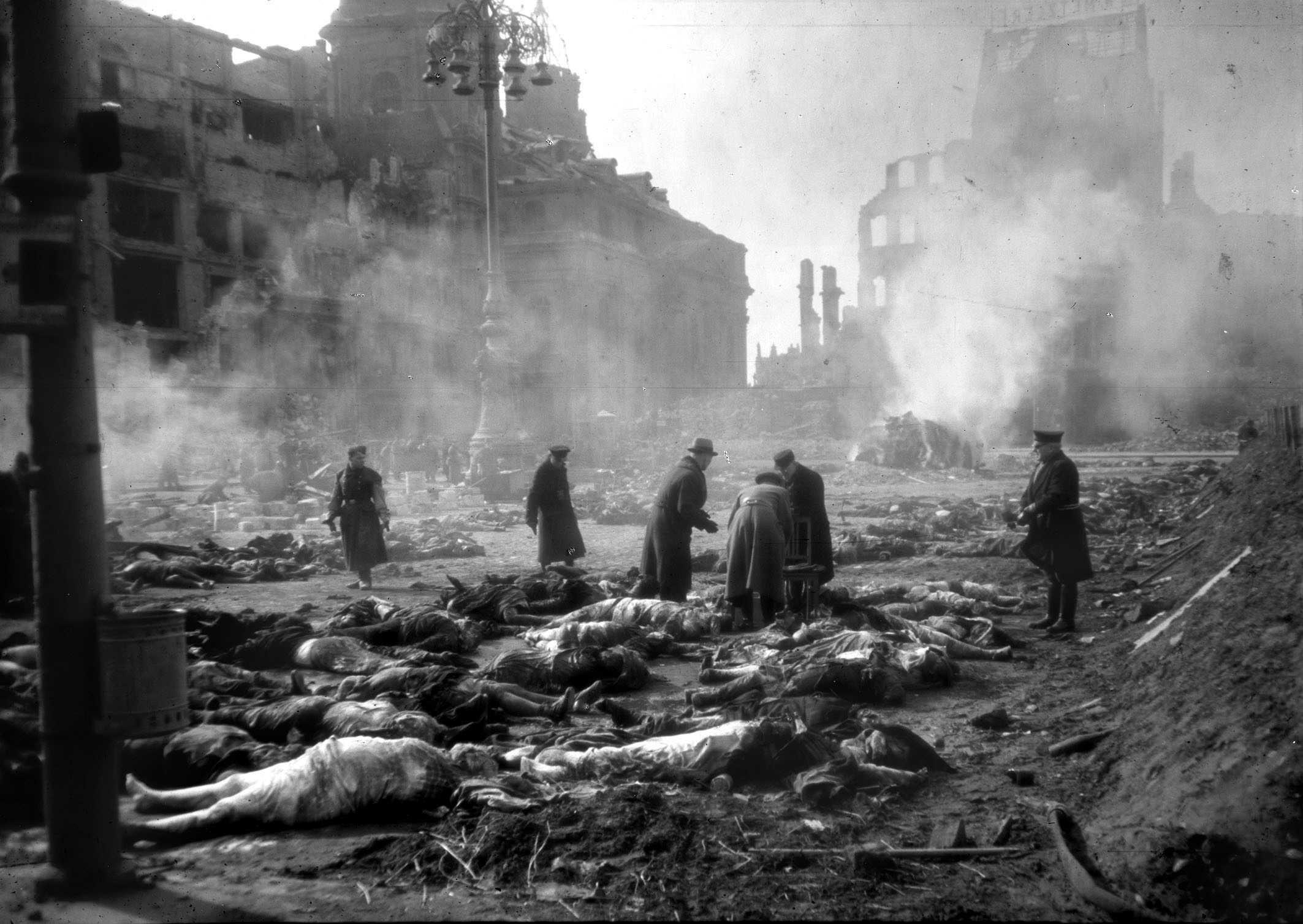
BOMBING CIVILIANS IN WORLD WAR II

In this lecture, we're going to discuss the role of bombing in the policy of England and America in World War II. Now, one of the reasons why England and America repeatedly broke their promises to the Russians in setting up a second front in Europe was the delusion that the deliberate mass murder of civilians would so frighten the Germans, that the Germans would surrender. And this was considered to be moral, since that would supposedly save lives. Now, this issue really needs to be examined a lot more closely than it has been. The British sabotaged all efforts in the 1930s in arms control treaties to ban the bombing of civilians, because they wanted the right to bomb Third World citizens in their Empire to hang onto their Empire, and to keep in power by murdering people who might want to oppose British civilization, and all sorts of other things that England claimed were so wonderful. So, this is an important point from day one.
Now, Germany never built a long-range bomber. The Luftwaffe was set up as a tactial Air Force, which is why we've often wondered why Hitler even launched the battle of Britain, because he did it - to a certain extent - as retaliation about British bombing of Germany. But the Luftwaffe was totally not set up for a bombing campaign. By contrast, the Royal Air Force and the American Air Force were very specifically designed for the wholesale bombing of cities, particularly the British Air Force. Now in 1942, early 1942, a total and complete change took place in British foreign policy. At that point in time, the specific policy known as area bombing was adopted. Now what area bombing meant was simply annihilating entire cities. It was designed to kill as many civilians as possible, and so on. What it involved was fleets of aircraft which would drop explosives on the first round, and they would particularly target first responders. they would typically target firehouses and water mains to prevent the fire department from coming in and putting out the fires. And then the second wave of bombers would drop tons and tons of incendiary bombs, which would set fires throughout the city.
Now, a particular aspect of this campaign was the deliberate mass murder of rescue workers, because they considered a brilliant innovation was the dropping of time-delay bombs that would kill ambulance drivers and fire people. So this was then launched. Now this is very significant because these resources were taken away from attacks on German military targets, and again, the assumption was that by the wholesale mass murder of entire cities, that the Germans would become so frightened, that they would surrender. Well, it didn't work. And every study of this has proven that it was a gross misallocation of resources. Those who have defended the bombing have tried to point out, "Well, it did affect German work production." Well obviously, if you destroy an entire city, you're bound to hit something. However, it left a huge cost of rebuilding, and it prolonged the war because it did not take out key parts of German industry. Also, industrial production and war production in England was diverted away from landing craft towards the bombing, so that in the summer of 1943, there was not enough landing craft to carry out the promises to Stalin. So, this is a very important point to understand. It's also very important point to understand that the statements of England and America were flat out lies.
Arthur Harris, the mastermind of civilian mass murder and England, comes across - in many ways - as a more sympathetic person than Churchill, because Harris wanted to make public what they were doing. This was considered too much, and so England and America, throughout the war, consistently lied about what they were doing. They consistently lied that they were only attacking military targets, and "Oh my gosh, if a civilian got killed, that was just terrible, but that was just war," and so on, and so forth. This is a completely untrue. Completely untrue. The goal was to wipe out entire cities.
In Hamburg in 1943, this whole tactic reached a - if you would call it - a big success. The British and Americans managed to kill more people in one attack than the Germans did in their entire bombing campaign of all of England. And what they managed to succeed was to create a firestorm in Hamburg that sucked the air out, and just basically incinerated a whole section of the city. This was not unique, though. This was carried out all across Germany, and was a key reason why England and America did not fulfill their commitment to open up a second front.